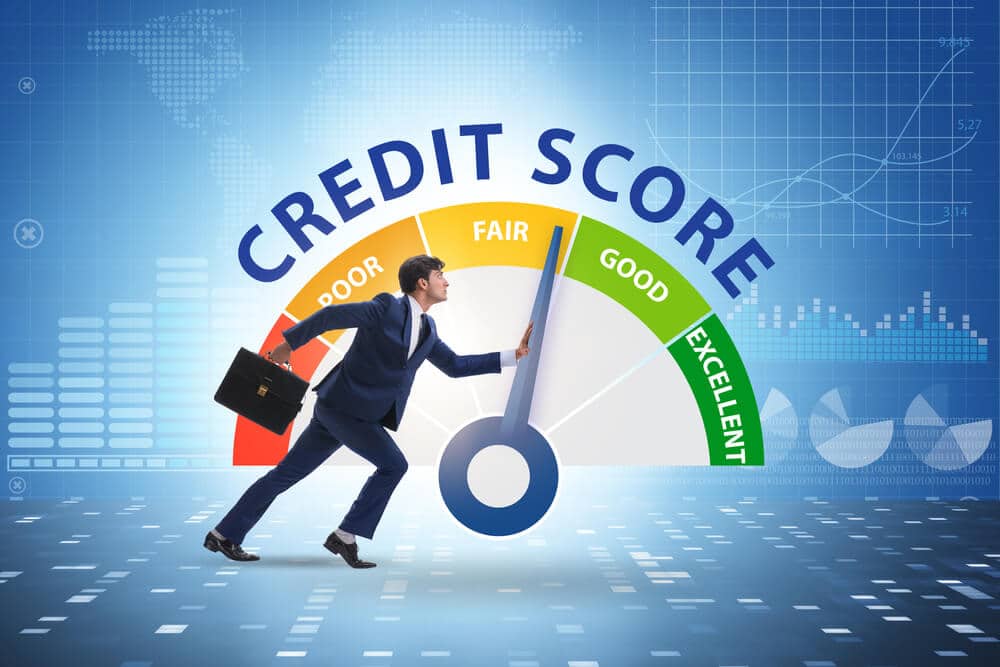Your credit score is among the most important measures of financial health. It demonstrates to lenders how responsible you are with credit. A high credit score will make it easier for you to obtain personal loans or lines of credit. Furthermore, a higher credit score allows you to borrow at the lowest possible interest rate.
In this article, we provide you with some tips on how to improve your credit score quickly so you can reap the benefits and save money.
1. Examine your credit reports first.
Knowing what factors may be working in your favor will assist you in improving your credit score. A credit history check comes in handy in this situation.
To begin, get a copy of your credit report from one of the major credit bureaus in the country, such as CIBIL. Then examine each report to see what is contributing to or detracting from your overall credit score.
Having a good credit score enables you to have a pre-approved online personal loan.
2. Maintain a Low Credit Utilization Ratio
Credit utilization is a ratio of current credit card debt to available credit card limit. For example, an individual with Rs. 500 in credit card debt and a Rs. 5,000-credit limit will have a credit utilization rate of 10%.
A general rule is to keep your usage rate below 25%. You may need to make many payments per month or ask your credit card issuer to increase your credit limits to get your utilization that low.
3. Make timely payments
When trying to increase your credit score, staying organized and making your payments on time is critical. The longer you wait, the worse your credit score will be.
A late payment before the 30-day mark will cost you a few rupees in late fees, but it will not impact your credit score. However, after 30 days, your late payment will appear on your credit report.
It’s bad enough to be 30 days late, but not being current is even worse. Getting current on all payments and keeping them so is an essential factor in evaluating your total credit score. Consider setting up automated payments or text reminders to remain on top of your bills.
4. Do not close old accounts.
Are you considering deleting an old credit card that you rarely use? You might want to reconsider. A solid payment history boosts your credit score, and your old credit card will do just that. If you close the old card, your credit report will remove the payment history, potentially lowering your credit score.
Furthermore, the previous card may be increasing your overall credit availability and decreasing your credit use.
5. Use a mix in credits
You might have a variety of debt. Mortgages, credit cards, and auto loans are the most common types.
It’s just as crucial to have a variety of credit kinds as it is to pay your obligations on time. Maintaining a credit mix and paying on time demonstrates to your lender that you can manage various credit lines, indicating that you’re a responsible borrower who understands credit.
Why Does a Good Credit Score Matter?
If you have a good or excellent credit score, you can save hundreds of thousands of rupees. In addition, people with good credit get better deals on mortgages, personal loans, car loans, and other forms of credit.
Lower-risk borrowers have better credit scores, and more institutions are prepared to compete for their business by offering better rates, fees, and bonuses. On the other hand, those with poor credit are considered higher-risk customers. As a result, fewer lenders compete for their business, and more companies get away with illegally high annual percentage rates (APRs).
Things that are Hurting Your Credit Score
- Payment History
Because the odds of missing a credit card payment are generally high, you should be especially cautious and keep track of the due dates. If you cannot meet payment deadlines, it is preferable to devise a simple, failsafe method to avoid delays. For instance, you can give your bank standing instructions to pay the bill from your savings account on a specific date. Your debt will accrue interest if you miss the due date or pay only the minimum amount required.
- Credit Utilization
It would be helpful if you knew how to calculate credit utilization. Most people are unaware that the higher your credit utilization ratio, the worse your credit score is. According to experts, you should only spend 20-30% of your credit limit. However, your credit utilization ratio suffers if you consistently spend a high percentage of your credit limit, say 60-80%. Therefore, it would help keep the ratio low because it improves your credit score. Using multiple credit cards is one strategy to combat excessive credit utilization ratios.
Ending Note
It’s important to remember that boosting your credit score takes time and patience, and it’s not something that can be accomplished immediately. To attain the desired credit score, you must maintain a certain level of financial discipline.


